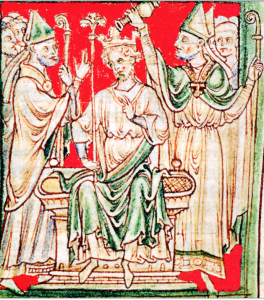EVERYONE KNOWS about the ancient Greeks and their celebration of same-sex love of a certain kind. But positive representations of queerness in the popular imagination appear to disappear with the Greeks, or possibly with the Romans, to be resumed only in 1969 with the Stonewall Riots and the revolution they unleashed. But surely something of interest must have happened in the intervening 2,000 years, not only in Western societies but elsewhere in the world as well.
Within the Euro-centered world with which we are most familiar, those two millennia have been dominated by a Christian morality that frowned upon open expressions of same-sex love. But for all the Church’s efforts, just such expressions continued to erupt, often in high and visible places, over the centuries. And when we move to queer representation in non-Western societies both ancient and modern, we find that anti-gay values and institutions are by no means universal. The point I’d like to make is supported by numbers, by the multiplication of cases from around the world, so let me cast a wide net across these two millennia to illustrate that LGBT people can be found in the most unlikely of times and places, often struggling against prevailing social norms and pressures to conform.

TO BEGIN somewhere in the middle of this stretch of time, in medieval England, we home in on an icon of heroic manhood, King Richard the Lionheart. Long before he gained this epithet, Richard was the intimate boyhood friend of Prince Philip II of France, and their special fondness for each other carried over into adulthood. Their contemporaries mention how Richard and Philip ate together and shared the same bed regularly. Granted, some historians claim that this bed-sharing was a political statement of the times, but what’s harder to contest is Richard’s infamous confession and penitence.







